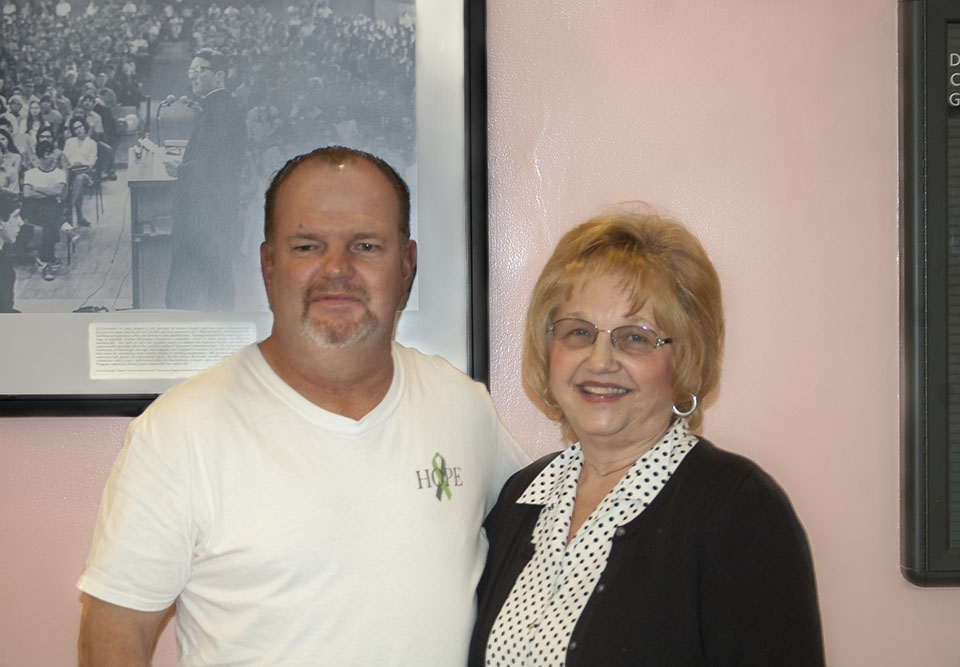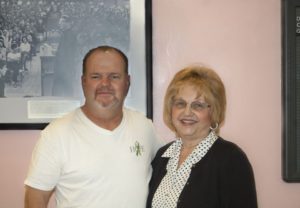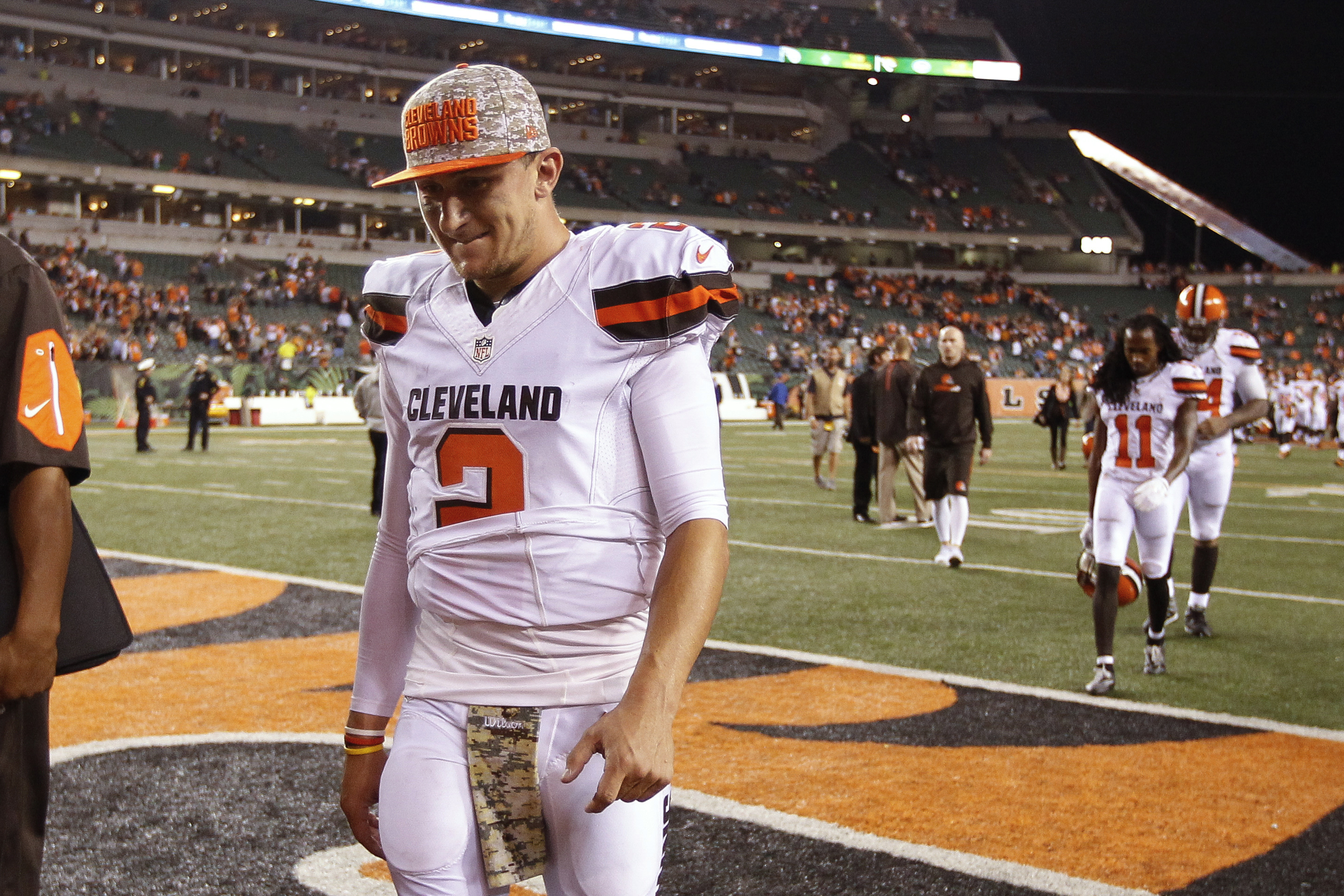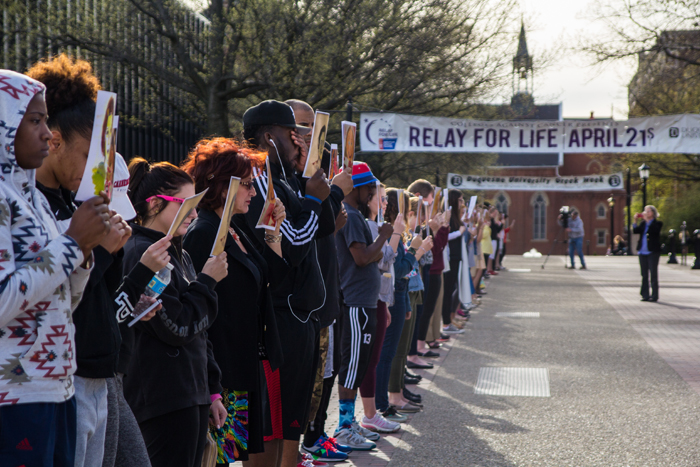
Bryan McNalley, left, is seeking a kidney transplant with the help of his sister, Joan Thompson, of the philosophy department.

Bryan McNalley, left, is seeking a kidney transplant with the help of his sister, Joan Thompson, of the philosophy department.
Raymond Arke | News Editor
03/15/18
Everyone is taught to share many as early as preschool. For one man with a Duquesne connection, a person willing to share a kidney could save his life.
Bryan McNalley is the brother of Joan Thompson, the longtime administrative assistant for Duquesne’s Philosophy Department. She said that it will have been 30 years with the department in August.
Thompson hopes to educate the campus community about her brother’s need for a new kidney and find a donor.
“He might not be with us much longer,” Thompson said.
McNalley has focal segmental glomerulosclerosis (FSGS), which affects his kidney’s ability to function. There is no known cause and the only cure is a transplant.
“It affects the filter systems in your kidneys … [they] don’t filter out the proteins,” he said.
Out of five stages of kidney failure, McNalley is in stage five.
“My kidney function is at 15 percent,” he said.
McNalley found out he had FSGS in 1990 at age 30 during a normal doctor’s checkup. The doctor had found protein in McNalley’s urine and did further tests, diagnosing him with the disease.
“It was a shock. I didn’t think anything was wrong,” he said.
Since his diagnosis, he has been kept on a strict diet.
“[I have had] no alcohol, no tobacco,” and foods are to be low in protein, phosphorus, potassium and sodium,” McNalley explained. He also has to drink a gallon of water a day.
Much of what he eats is “mainly vegetables, some fruits,” along with 6 ounces of meat or fish a day, he said.
As the disease has progressed, McNalley has become in need of a kidney transplant and is currently waiting on the often crowded transplant list.
“I’ve been on a transplant list. It’ll be two years in June,” he said.
He would prefer getting a live donor, as those kidneys last much longer than ones from a cadaver, plus he might not be able to wait for a cadaver kidney to become available.
“The average wait for a cadaver kidney in Pittsburgh is five years,” McNalley said.
Thompson and McNalley’s brother both have health issues that prevent them from donating.
To help speed up the process of finding a donor, he has taken the effort into his own hands. His family created a Facebook page called Kidney4Bryan, which he says has 200 followers so far. McNalley has also taken to wearing a t-shirt which states his contact information, his blood type and his need for a new kidney.
He wore the t-shirt to Disney World where he met many people who offered words of support and some who said they may be able to donate, but so far no success.
“There were a few people … a lady from South Carolina, a complete stranger [said she would help], but I have not heard back,” McNalley said.
He explained that the donation process is not too difficult or time-consuming. First, a potential donor has to have the same blood type.
“[Then] they’re tested … make sure their organs are ok,” McNalley said. Then if the donation could proceed, most donors are out of the hospital in two days and back to regular work in less than a week.
An interested donor doesn’t have to worry about medical costs either.
“My insurance would cover testing and transplant … pay for lodging,” he said. The only thing McNalley’s insurance doesn’t account for would be the missed salary of the donor’s time off work.
McNalley also said that anyone who is interested doesn’t have to worry about him mistreating the new kidney.
“I’m somebody that has taken care of my kidneys. I’m not going to abuse it,” he said. According to his medical history, he has never smoked, has no alcohol intake and does not take illicit drugs.
McNalley hopes he hears from a donor soon so that he can continue taking care of his mother and his stepchildren.
If you are interested in getting in contact with McNalley, his blood type is O and more information can be found on the Kidney4Bryan Facebook page.




